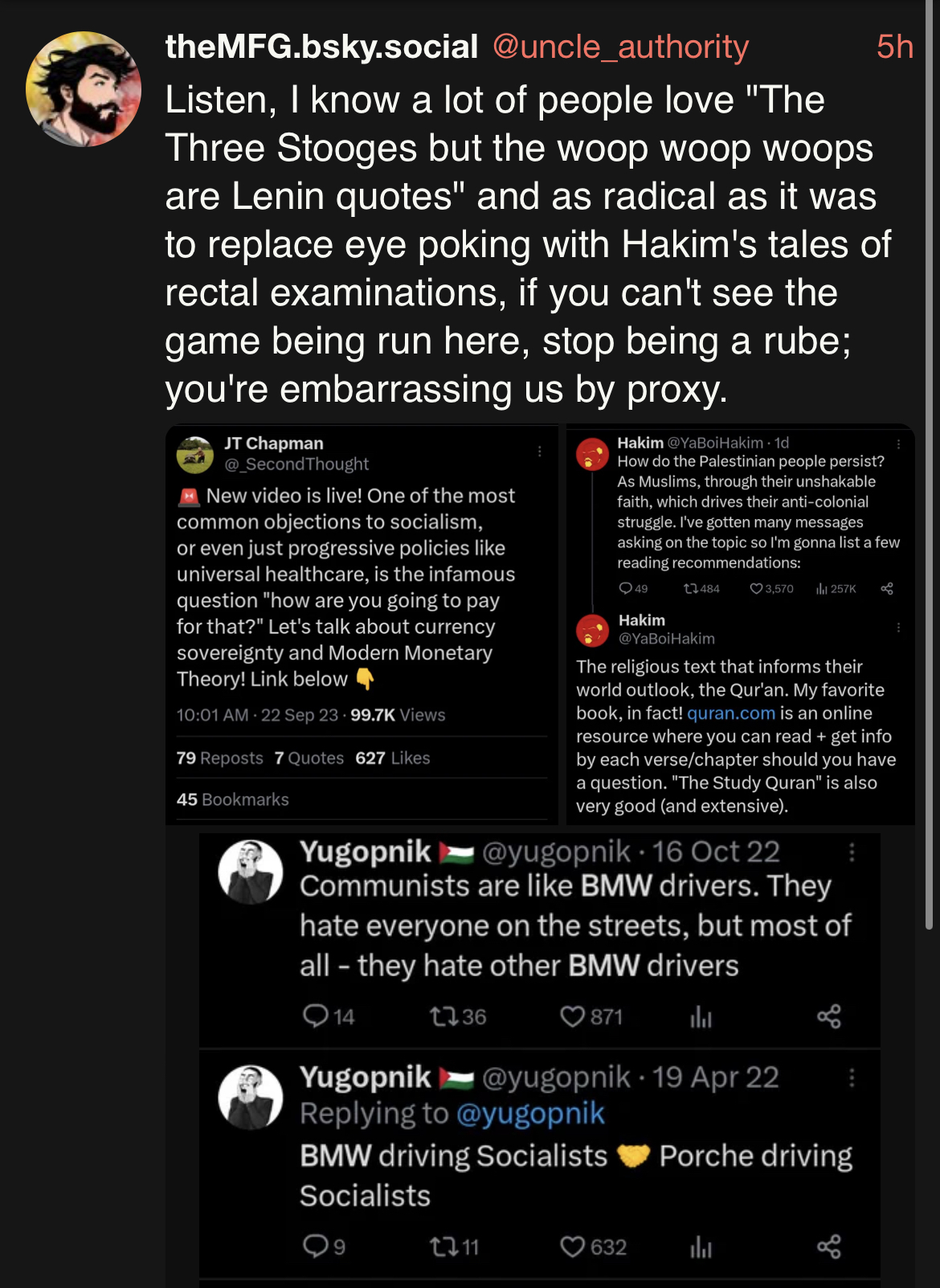the_dunk_tank
It's the dunk tank.
This is where you come to post big-brained hot takes by chuds, libs, or even fellow leftists, and tear them to itty-bitty pieces with precision dunkstrikes.
Rule 1: All posts must include links to the subject matter, and no identifying information should be redacted.
Rule 2: If your source is a reactionary website, please use archive.is instead of linking directly.
Rule 3: No sectarianism.
Rule 4: TERF/SWERFs Not Welcome
Rule 5: No ableism of any kind (that includes stuff like libt*rd)
Rule 6: Do not post fellow hexbears.
Rule 7: Do not individually target other instances' admins or moderators.
Rule 8: The subject of a post cannot be low hanging fruit, that is comments/posts made by a private person that have low amount of upvotes/likes/views. Comments/Posts made on other instances that are accessible from hexbear are an exception to this. Posts that do not meet this requirement can be posted to [email protected]
Rule 9: if you post ironic rage bait im going to make a personal visit to your house to make sure you never make this mistake again
view the rest of the comments


MMT has little to do with whether it is a capitalist or a socialist economy, it is simply a description of how fiat money works.
MMT: the ability of a government with currency sovereignty (not pegged to gold or other currency) to deficit spend is not bound by the taxes it collects
After WWI, many countries re-pegged to the gold standard and eventually walked into the Great Depression in 1929-33 as their fiscal space was limited by the amount of gold reserves they possessed.
In the USSR, there was a brief period of toying with returning to the gold standard during the NEP (golden chernovets), but as Solonikov (People’s Commissar of Finance) was expelled in 1926 after joining Kamenev and Zinoviev’s “new opposition”, the issuance of chernovets stopped, and ruble was decoupled from the gold standard.
Fig. 1. Average monthly volume of ruble in circulation in the USSR (in trillion). Source: Central Bank of Russia
Look at how the money supply shot up exponentially as the USSR entered the first Five-Year Plan in 1929 to finance public infrastructure projects at a scale never seen before. There is no way that they could have created so much money if they were to adhere to the gold standard.
Meanwhile, Soviet citizens paid very little taxes while getting free housing, education, healthcare and public services. The USSR recovered to its pre-war economy in just 5 years, while keeping pension and social services intact, after half of the country was laid in ruins and 27 million Soviet people perished during Nazi Germany’s invasion. There is no way they could have done that while keeping to the neoclassical (monetarist) theory, after experiencing such economic devastation.
According to MMT, a government with monetary sovereignty can spend as much as it wants and is only limited by labor, resources and technology.
Stalin at the Plenum of the Central Committee of the All-Union Communist Party of Bolsheviks, 1933:
(Note: the US eventually also went off gold in 1933 during the New Deal, re-pegged to gold during the Bretton Woods from 1944 until Nixon’s decoupling in 1971)
Good poast hot damn
The reason citizens paid little tax was because the government got most of its funding from SOE profit. It has nothing to do with MMT.
This makes no sense under fiat monetary sovereignty. The government never makes a “profit” or a “loss” in any meaningful way (in its own currency).
It would be closer to the truth to see it as the government 1) never having any money at all, and 2) having the power to distribute to others arbitrarily large amounts of money and 3) having the power to destroy arbitrarily large amounts of that distributed money through taxation.